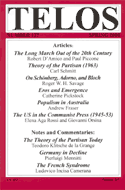It seems that a young internet highflier who calls himself “the Argonaut,” whose idée fixe is the future of the European Union, has become the champion of a possible Federalist European Union and is bombarding the network with a number of miracles that, according to him, are being achieved in Brussels and Strasbourg. He claims that Europe’s political unification is fully realized, that the ECB has extended quantitative easing to all European banks, that the Greek problem, he happily announces, is solved thanks to a giant issue of fifty-year Greek government real estate bonds, which are sending the international financial market agog. The EU Commission, the Argonaut dreams, has decided to support the British suggestion that the EU MPs should work inside various 28 national parliaments, thus integrating the European institutions, and not in Strasbourg; he moreover says that the Frontex Immigrant Agency in Warsaw, duly instructed by Germany, has accepted enthusiastically to coordinate the Mediterranean immigrants distribution among the EU member states who heartedly agree. His most fantastic declaration is that five EU defense ministers of Germany, France, Italy, Spain, and Great Britain, based on articles 28, 42, and 43 of the Lisbon Treaty, have created the EEF, an European Expeditionary Force, which will be based in Sardinia and near Cracow. Special arrangements, he candidly assures the social network, have already been signed with NATO.
|
As an occasional feature on TELOSscope, we highlight a past Telos article whose critical insights continue to illuminate our thinking and challenge our assumptions. Today, Johannes Grow looks at Pierluigi Mennitti’s “Germany in Decline,” from Telos 127 (Spring 2004). |
||||
|
Telos Press Publishing · PO Box 811 · Candor, NY 13743 · Phone: 212-228-6479 Privacy Policy · Data Protection Copyright © 2024 Telos Press Publishing · All Rights Reserved |
||||
 In “Germany in Decline,” from Telos 127 (Spring 2004), Pierluigi Mennitti addresses Berlin’s inability to enact “true” reforms, which has subsequently led to a decline in its economic, geopolitical, and cultural influence. Through an examination of a contemporaneous Der Spiegel article, Mennitti demonstrates the reluctance of the Federal Republic to accept such thoroughgoing Reformen, which would allow it to crawl out of its then apparent decline and to depend far less on the economic strategies propounded during the so-called “economic miracle” of the post-1949 era. Although it would seem to have been premature to write off Germany as the “economic engine” in Europe, his article nevertheless offers several accurate points. For example, Mennitti asserts that Germany
In “Germany in Decline,” from Telos 127 (Spring 2004), Pierluigi Mennitti addresses Berlin’s inability to enact “true” reforms, which has subsequently led to a decline in its economic, geopolitical, and cultural influence. Through an examination of a contemporaneous Der Spiegel article, Mennitti demonstrates the reluctance of the Federal Republic to accept such thoroughgoing Reformen, which would allow it to crawl out of its then apparent decline and to depend far less on the economic strategies propounded during the so-called “economic miracle” of the post-1949 era. Although it would seem to have been premature to write off Germany as the “economic engine” in Europe, his article nevertheless offers several accurate points. For example, Mennitti asserts that Germany 






